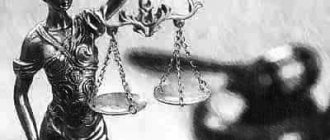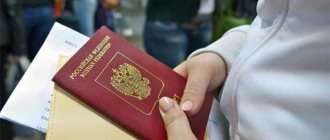PLOs independently request documents:
- certificate of no criminal record against health and life;
a document confirming that the guardian has his own living space;
Within a week after submitting an application about the desire to formalize guardianship of an elderly person, the authorized bodies examine the living conditions of the potential guardian and issue an inspection report.
Next, the OPP makes a decision to appoint a certain person as a guardian or a conclusion that this person cannot be appointed as a guardian of an elderly person, indicating the reason.
An adult, unconvicted, capable citizen has the right to formalize guardianship.
Some features of the procedure
A PCO may terminate guardianship if:
- direct responsibilities towards the ward are not fulfilled;
- misuse of the ward's funds is revealed;
- other disorders were present;
- in the event of the death of the ward.
An elderly person has the right to personally apply for guardianship if it is difficult for him to cope without outside help. He can apply for the appointment of a specific person as a guardian or for the appointment of a guardian from the PLO.
Guardianship for a disabled person of group 1 (after a stroke, for example) can be arranged without declaring him incompetent . This order is due to the fact that the person is of sound mind, but cannot take care of himself.
If a person has recovered from a stroke and recovered, guardianship will be removed . If a stroke causes disability, and the legal capacity is confirmed by the court, patronage is issued over him, having previously obtained the consent of the ward.
Declaring a person incompetent is also not required for a person over 80 years of age. But the guardian must be a non-working person of working age.
Declaration of incapacity after a stroke
In the spring, my grandmother had a stroke and after it she almost stopped walking, lost her memory, very rarely returns to reality and recognizes someone from her loved ones. My grandmother is 87 years old and has diabetes. After being discharged from the hospital, we were denied registration of disability, the on-site examination of the doctors necessary for this, or any examination. For 5 months now, we have not been able to receive a pension and subsidized diapers for her, because there is no court decision declaring my grandmother incompetent due to the lack of an examination by one doctor or a conclusion from a psychotherapist. Since none of the doctors like this should come to the house and we are obliged to transport her with special transport at our own expense in order to get the signature of one or another doctor, everything takes a very long time.
Tell me, please, is this really how things should happen in our country, that an 87-year-old man with diabetes mellitus after a stroke, not quite in his right mind, needs to be dragged everywhere by himself so that the court will declare him incompetent in half a year?
Lawyers' answers (1)
You phrased your question a little strangely in front of a lawyer. The point is not how things should happen in the country, but how, according to the current legislation, certain actions can be taken. For example, it is not clear to me, if you have not yet gone to court, what kind of examination are you talking about. In such cases, an expert examination must be ordered by the court. For the court (to have grounds), it is enough to bring a conclusion, which can be drawn up in any medical institution where the necessary specialists work (as a rule, on a paid basis, you can arrange a home visit to examine the patient). And then, you can do without it (you have medical documents on a stroke, you can attach them), since the main evidence is still a forensic examination
A full examination is already ordered in court. There is no need to constantly take your grandmother anywhere. One day will be appointed for carrying out all the necessary events with her participation, to which she will need to be brought (yes, inconvenient, problematic, but possible). There is no need to take it anywhere else.
This is interesting: Can an incapacitated citizen work in 2021?
Looking for an answer? It's easier to ask a lawyer!
to our lawyers - it’s much faster than looking for a solution.
Recognition of an elderly person as incompetent after a stroke
Good afternoon My dad had a stroke and became incapacitated, completely lost his speech and the entire right side does not work. 2 years have already passed since the stroke. Dad's pension is transferred to his savings book. I would like to clarify with you how I can arrange to receive a pension from his savings book for his maintenance. What to do? He himself cannot say anything in order to sign a power of attorney with a notary for me, the right side does not work, and accordingly, he cannot sign any documents. I am his daughter. Where should I contact? Help. As I understand it, even if I go to the savings bank with his passport, they won’t give me anything.
Hello Irina! According to Art. 29 of the Civil Code of the Russian Federation, a citizen can be declared incompetent by a court only if, due to a mental disorder, he cannot understand the meaning of his actions or control them. However, it happens that a citizen may not control his actions or be unable to perform any actions not at all because he has a mental disorder, but because he has another disease. For example, he was paralyzed after a stroke, he is aware and understands everything, but cannot control his actions. In judicial practice, there are many examples of recognizing persons who have lost their health as a result of a stroke as incompetent. A case on declaring an elderly person incompetent after a stroke can be initiated in court on the basis of an application from members of his family, close relatives (parents, children, brothers, sisters), regardless of the joint residence with him, the guardianship and trusteeship authority, a psychiatric or psychoneurological institution. An application to recognize a citizen as legally incompetent is submitted to the court at the place of residence of the citizen. The application for declaring a citizen incompetent must set out the circumstances indicating that the citizen has a health disorder, as a result of which he cannot understand the meaning of his actions or manage them. The judge, in preparation for the trial of a case on declaring a citizen incompetent, if there is sufficient data about the person’s illness, appoints a forensic examination to determine his condition. The court considers an application to recognize a citizen as incompetent with the participation of the citizen himself, the applicant, the prosecutor, and a representative of the guardianship and trusteeship authority. A citizen in respect of whom a case is being considered to declare him incompetent must be summoned to a court hearing, if this is possible due to the state of the citizen’s health. If an application to declare a person incompetent is satisfied, guardianship is established over him. Guardians are representatives of the wards by force of law and make all necessary transactions on their behalf and in their interests. That is, you will be able to receive his pension without a power of attorney and spend it on the maintenance of your father if you are appointed as his guardian. If your father recovers from the stroke, it is possible through the court to again recognize him as legally competent.
When can it be refused?
Declaring an elderly person incompetent after a stroke cannot always be satisfied in favor of the plaintiff, since this action completely abolishes all human rights, so the court will proceed only from the interests of the patient. Even without conducting an examination, the judge may refuse the procedure and the plaintiff’s stated demands.
They usually refer to the absence of grounds, mental disorders, or illnesses. Even if the examination is carried out, the court may refuse if the data specified in the document contradicts reality. That is, if there is a disagreement, the court takes into account only the real situation of the patient.
In this case, a person may be temporarily limited in legal capacity if he:
- temporarily cannot come to his senses;
- cannot give his exact address;
- unable to care for oneself;
- cannot stand up, there is paralysis;
- a bedridden patient who has fallen into a coma.
The latter does not give his relatives the right to recognize his ability as insignificant, since an old person can still come out of it.
If he does not come out of a coma for more than six months, the guardianship and trusteeship authorities can issue documents for the citizen, taking him to a nursing home. When relatives apply for recognition of incapacity six months later, the claim is granted, however, the elderly person is placed in a rehabilitation center. According to Article 67 of the Code of Civil Procedure of the Russian Federation, a commission of experts will be forced to conduct its own independent examination of the fact of a person’s sanity. The ability can be returned if the person comes out of a coma. In practice, the recognition of a person in a coma as incompetent occurs without his consent and participation, respectively. Documents for receiving sick care benefits are not assigned; only responsible government bodies can apply for deductions and benefits. According to Part 3 of Article 86 of the Code of Civil Procedure of the Russian Federation, only doctors can call a person out of a coma, although in practice this also happens “suddenly”, for medical reasons. At the same time, insanity and complete apathy remain. Then, after discharge, the citizen is sent home to his place of registration with the assignment of a nurse who cares for him according to the prescribed testimony of doctors.
Recognition of incompetence after a stroke: judicial practice
Changes and additions:
Having discussed the results of a study of the practice of courts considering cases on recognizing a citizen as having limited legal capacity or incapacity, as well as on recognizing a citizen as legally capable or on the abolition of a restriction of legal capacity, for the purpose of uniform and correct application of legislation by the courts Plenum of the Supreme Court of the Republic of Belarus
1. To draw the attention of the courts to the fact that compliance with the rule of law when considering cases on recognizing a citizen as having limited legal capacity or incapacity, as well as cases on canceling the restriction of legal capacity or recognizing a citizen as legally competent is an important guarantee of judicial protection of civil rights. Therefore, in cases of this category, it is necessary to comprehensively, fully and objectively determine the existence of the circumstances that served as the basis for the statement of such claims, and ensure their consideration in strict accordance with the provisions of Chapter 30 of the Code of Civil Procedure (Articles 362, 373–376 of the Code of Civil Procedure).
2. Courts need to keep in mind that in accordance with Part 1 of Art. 30 of the Civil Code, in order to limit the legal capacity of a citizen, two conditions that are in a causal relationship are necessary: 1) his abuse of alcoholic beverages, narcotic drugs or psychotropic substances; 2) putting your family in a difficult financial situation. The presence of earnings and other income from other family members cannot in itself be grounds for refusal to satisfy the stated requirements.
3. The fact of a citizen’s abuse of alcoholic beverages, narcotic drugs or psychotropic substances must be confirmed in court by relevant evidence, which includes: certificates of placement in a sobering-up center or provision of medical care in connection with a condition associated with the abuse of alcoholic beverages, narcotic drugs or psychotropic substances substances, examination reports to establish dependence on alcohol, narcotic drugs or psychotropic substances, acts of forensic drug examination or forensic psychiatric examination, documents from law enforcement agencies about violations of public order, the creation of conflict situations in the family, other evidence confirming a person’s dependence on alcohol , narcotic drugs or psychotropic substances.
To be recognized as having limited legal capacity, it is not necessary that a citizen be a chronic alcoholic or drug addict.
4. When determining whether a family is being placed in a difficult financial situation, the court must pay attention to the degree of participation of the person in respect of whom the question of limited legal capacity is being raised in supporting family members in need of assistance, in bearing the costs of providing the corresponding living conditions, payment of utilities, as well as costs of housekeeping, maintaining the house (apartment) in proper sanitary condition, etc. In addition, the court takes into account the family’s costs of maintaining a person who abuses alcoholic beverages, narcotic drugs or psychotropic substances.
If the court finds that the citizen does not participate in the costs of maintaining the family not due to the abuse of alcoholic beverages, narcotic drugs or psychotropic substances, but due to the lack of permanent earnings or income for objective reasons (due to illness, inability to find a job, etc.) , then he cannot be limited in his legal capacity.
5. Courts should keep in mind that limitation of legal capacity is the basis for establishing guardianship over a citizen. Due to restrictions on legal capacity, a citizen without the consent of the trustee does not have the right, in particular, to sell, give, exchange, buy property, make other transactions for the disposal of property, with the exception of small household ones, as well as receive wages, pensions and other types of income ( royalties, remuneration for inventions, amounts due for the performance of work under a contract, all kinds of benefits, etc.).
Limitation of legal capacity does not relieve a citizen from the obligation to independently bear property liability for transactions made by him and for harm caused by him.
6. Draw the attention of the courts that the basis for declaring a citizen incompetent (Article 29 of the Civil Code) is the presence of a mental disorder (mental illness or dementia), due to which he cannot understand the meaning of his actions or control them. A citizen suffering from a mental disorder that does not deprive him of the ability to understand the meaning of his actions or direct them cannot be declared incompetent.
7. Explain to the courts that an application to recognize a citizen as having limited legal capacity due to abuse of alcoholic beverages, narcotic drugs or psychotropic substances can be submitted to the court by members of his family, the prosecutor, the guardianship and trusteeship authority, as well as a public association whose charter grants such a right (ch 1 Article 373 Code of Civil Procedure).
Family members include: spouse, children and parents, adoptive parents, adopted children, siblings, grandparents, grandchildren, as well as other relatives, disabled dependents and other persons who live together with the citizen in respect of whom the issue of limiting legal capacity, and conduct a common household with him (clause 26, article 1 of the Code of Civil Procedure). Living separately and not having a common household is grounds for denying these family members their demands.
The prosecutor or the guardianship and trusteeship authority has the right to apply to the court to limit a citizen’s legal capacity if this is required by the interests of minor children or other persons living together with such a citizen.
8. An application to recognize a citizen as incompetent due to mental illness or dementia can be filed with the court by members of his family, and in their absence - by close relatives, regardless of whether they live together with such a citizen or not, as well as by the prosecutor, guardianship authority and guardianship represented by health departments (departments) of local executive and administrative bodies, and in their absence in the structure of the relevant executive and administrative bodies - by institutions that are entrusted with such functions, as well as a psychiatric (psychoneurological) health care organization (Part 2 of Art. 373 Code of Civil Procedure).
This right is granted equally to everyone specified in Part 2 of Art. 373 of the Code of Civil Procedure for persons, with the exception of close relatives, who can apply to the court to declare a citizen incompetent only if this citizen has no family members.
The range of persons who have the right to submit claims for declaring a citizen incompetent is exhaustive. When submitting an application from persons not listed in Part 2 of Art. 373 of the Code of Civil Procedure, the judge refuses to initiate a case, and if this circumstance is discovered during the trial, terminates the proceedings (Part 3 of Article 362 of the Code of Civil Procedure).
9. An application to recognize a citizen as having limited legal capacity, in addition to the general requirements imposed on him (Article 109 of the Code of Civil Procedure), must contain an indication of circumstances indicating that a person who abuses alcoholic beverages, narcotic drugs or psychotropic substances puts his family in a difficult financial situation , and on declaring a citizen incompetent - an indication of circumstances indicating a mental disorder, as a result of which the person cannot understand the meaning of his actions or manage them (Article 373 of the Code of Civil Procedure).
In the absence of such information in the application, the judge, in accordance with Art. 111 of the Code of Civil Procedure issues a reasoned decision to leave the application without progress and provides the applicant with a period to correct deficiencies.
10. Draw the attention of the courts that the mental state of a citizen is determined by a forensic psychiatric examination, therefore its appointment in cases of declaring a citizen incompetent is mandatory if there is sufficient evidence of the citizen’s mental illness or dementia. Such data are, in particular, information contained in an extract from the medical history; certificate of registration and treatment in psychiatric (psychoneurological) healthcare organizations; certificate of disability due to mental illness, etc.
The judge decides on the appointment of a forensic psychiatric examination in order to prepare the case for trial in compliance with the rules established by § 5 of Chapter 22 of the Code of Civil Procedure. In the determination to order an examination, the main questions for determining the mental state of a person are: 1) whether the person suffers from mental illness or dementia; 2) whether, due to a mental disorder, he can understand the meaning of his actions or manage them.
This is interesting: The Criminal Code of the Russian Federation considers medical confidentiality as 2021
The decision to conduct an outpatient or correspondence forensic psychiatric examination in a specific case is made by experts, therefore, when making a determination to order an examination, the court should not enter into a discussion of this issue.
In case of obvious evasion of a person against whom a case has been initiated for declaring him incompetent, the court, in a court hearing with the participation of a prosecutor and a psychiatrist, issues a ruling on the forced referral of the citizen for a forensic psychiatric examination (Article 374 of the Code of Civil Procedure). The court entrusts the execution of such a ruling in accordance with the provisions of the Law of the Republic of Belarus of January 7, 2012 “On the provision of psychiatric care” to the relevant internal affairs body.
11. Courts should keep in mind that, by virtue of Art. 375 of the Code of Civil Procedure, the case of recognizing a citizen as having limited legal capacity or incapacity is considered with the mandatory participation of a prosecutor and a representative of the guardianship and trusteeship authority. In this case, a representative of the guardianship and trusteeship authority gives an opinion on the case (Article 90 of the Code of Civil Procedure). The citizen in respect of whom the question of limitation in legal capacity is raised, as well as the citizen in respect of whom the question of recognition as incompetent is raised (if he participates in the consideration of the case), are involved in participation in the case as interested parties. At the same time, participation in the consideration of the case of a citizen in respect of whom the question of restriction of legal capacity is raised is mandatory.
If the case was initiated at the request of the prosecutor, the guardianship and trusteeship body, a public association, the charter of which provides the right to submit an application for recognition of a citizen as having limited legal capacity, or a psychiatric (psychoneurological) health care organization (for recognition of a citizen as incompetent), the applicants in the case must be accepted participation of family members or close relatives of the citizen.
12. Draw the attention of the courts that, based on the provisions of Part 3 of Art. 375 of the Code of Civil Procedure, a court decision to recognize a citizen as having limited legal capacity or incapacity must be motivated.
The operative part of the decision sets out the court’s conclusion on recognizing the person as having limited legal capacity or incapacity, or on leaving the stated demands unsatisfied. If a citizen is recognized as having limited legal capacity due to the abuse of alcoholic beverages, narcotic drugs or psychotropic substances, the court should indicate the scope of restrictions in strict accordance with Part 1. 2 and 3 clauses 1 art. 30 GK.
The court does not have the right to indicate in its decision the establishment of guardianship or trusteeship over a citizen recognized as incompetent or with limited legal capacity, since the resolution of such issues falls within the competence of the guardianship and trusteeship authorities. To appoint a guardian or trustee, the court is obliged, within three days from the date the decision enters into legal force, to send a copy of it to the guardianship and trusteeship authority at the place of residence of the person recognized as partially capable or incompetent (Part 5 of Article 375 of the Code of Civil Procedure).
13. The court makes a decision to cancel the restriction of legal capacity or to recognize a citizen as capable if the grounds on which the citizen was declared incompetent or limited in legal capacity no longer exist. Restriction of legal capacity is also canceled by the court in cases where the family of a person recognized as having limited legal capacity has ceased to exist (for example, due to death, family separation) and, therefore, the obligation of this person to provide funds for its maintenance has ceased.
The court clarifies these circumstances on the basis of the evidence presented: a certificate from a medical institution about undergoing treatment for alcoholism or drug addiction, characteristics from the place of residence (work), witness testimony, etc.
14. Cases on recognizing a citizen as capable or on lifting a restriction of legal capacity are considered by the court in the manner prescribed by Art. 376 of the Code of Civil Procedure, at the place of residence of the citizen, regardless of which court made the decision to limit legal capacity or to recognize the citizen as incompetent.
15. Courts should keep in mind that court costs (state fees and costs associated with the consideration of the case) in cases of recognition of a citizen as having limited legal capacity or incapacity are not subject to recovery from the applicant, except in cases where the applicants did not act in good faith, for the purpose of knowingly unjustified restrictions or deprivation of a citizen’s legal capacity (part 4 of article 375 of the Civil Procedure Code). The obligation to bear legal costs cannot be imposed on interested parties.
16. In the process of considering each case, courts should find out the reasons contributing to drunkenness, alcoholism, consumption of narcotic drugs or psychotropic substances, and take measures to eliminate them, in particular, bring them to the attention of the relevant authorities by issuing private rulings and monitor their implementation ( Article 325 of the Code of Civil Procedure).
17. Recognize as invalid the resolution of the Plenum of the Supreme Court of the Republic of Belarus dated March 15, 1978 No. 4 “On judicial practice in cases of limiting the legal capacity of citizens who abuse alcohol or drugs” (with amendments and additions dated October 15, 1986, 2 December 1987 and September 23, 1999) (National Register of Legal Acts of the Republic of Belarus, 1999, No. 78, 6/56).
Chairman of the Supreme Court of the Republic of Belarus V.O. Sukalo
Secretary of the Plenum, Judge of the Supreme Court of the Republic of Belarus I.N. Minets
How to declare a person incompetent after a stroke
We are in a hopeless situation!
All levels have been passed. We haven't been able to find a solution for several months now. Please read to the end.
Previously, my mother contacted you with a question (Question No. 2691052 dated September 20, 2013): We sold a dacha. To complete the transaction with the buyer, we need a notarized permission from her husband (with whom we have been married for 43 years). After a stroke he suffered (6 years ago), he is deprived of speech, his right arm is paralyzed, and today he is already deprived of both legs. The notary refused to certify his consent due to his incapacity (advising that he be recognized as such). We filed a lawsuit in the city court (Velikiye Luki) to declare my father incompetent. Based on the results of the commissions, the claim was rejected. (I completely agree, because the father understands everything, expresses his agreement with a nod, etc.) Based on the court decision, we called the notary again. During the visit, she asked permission to film. Mother forbade, father allowed. She took her father's answer into account and began filming. She demanded that my father write the phrase I agree with the sale of the dacha, but my father cannot write with his left hand. She gave me a laptop so that he could type it (to a bedridden 67-year-old man whose cat does not know how to use it). As a result, the notary refused again, citing incapacity. (It seems to me that she is already contradicting herself with her actions). Next, we filed a lawsuit to cancel her decision and a complaint to the president of the notary chamber of the Pskov region. A video was presented in court by a notary, the mother said that she was against it and was filmed with the father’s permission. We lost the lawsuit, the court decision - there is no expression of consent. The President advised me to contact another notary. We filed an appeal to the regional court, the decision was the same. We don’t know what to do now. The notaries who were contacted refuse to travel. Justifying that in the city, visits to patients are strictly alphabetical (collegial decision). We were looking for notaries in the region, but the notary who guided us called others and now no one wants to deal with her (their words). In addition, the mother’s power of attorney to receive a pension is ending. We were offered to re-file a claim to declare our father incompetent. But this is not a solution (in my opinion), because... his mental state did not change (we made signs with the answers and asked questions. All the answers were correct). I really ask for help. Are the actions of notaries legal? How to solve this situation? Is it possible to complete the deal? Very inconvenient for the buyer. Thank you in advance.








